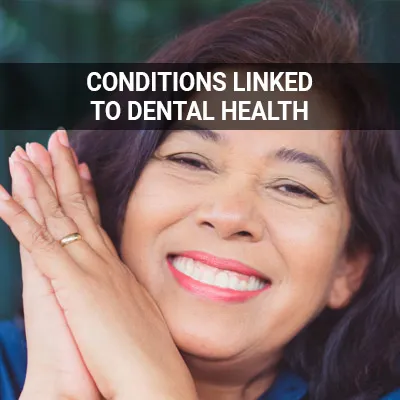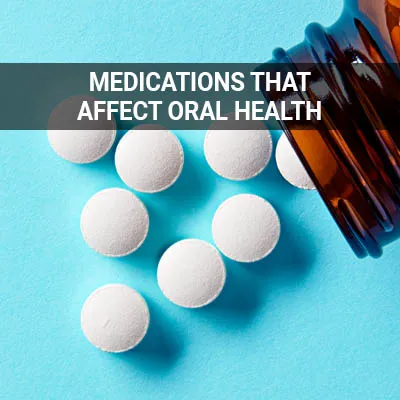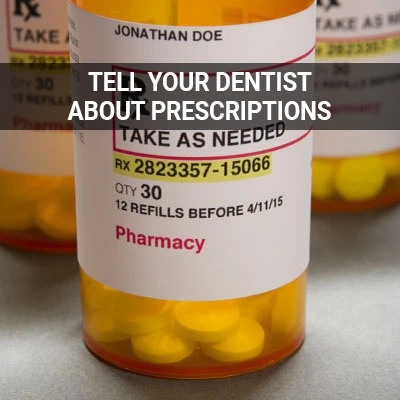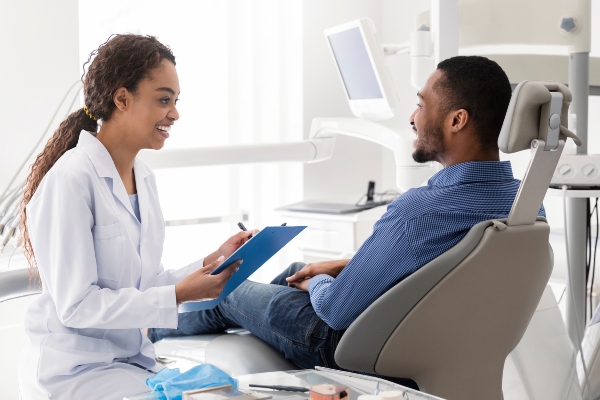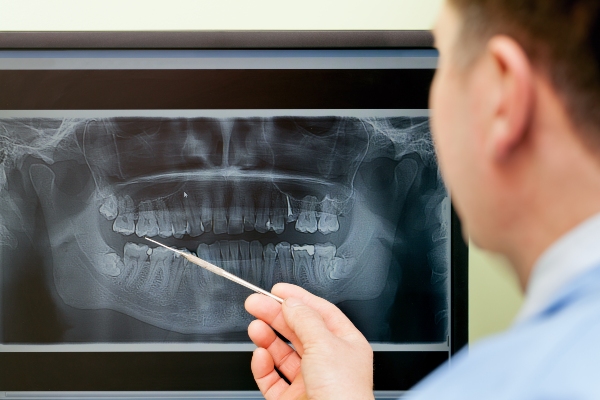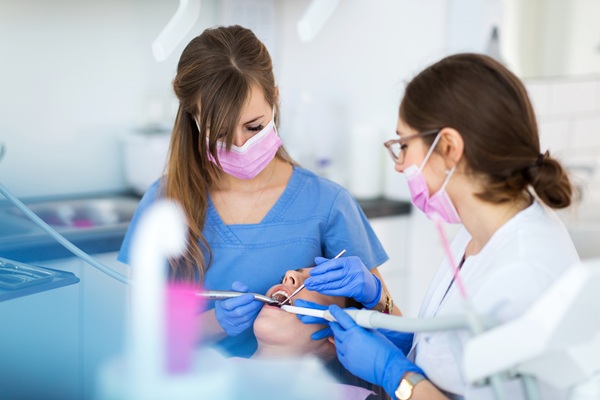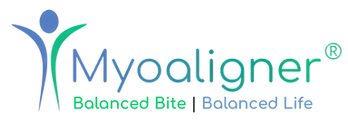Probiotics and Prebiotics in Dental New York, NY
The general public has long known about the benefits of probiotics and prebiotics for gut and gastrointestinal health. Research is now showing promising results of pro and prebiotics in relation to oral health and its impact on patients' general health. Pro and prebiotics serve different functions but have shown significant health benefits to the oral cavity when taken simultaneously during dental treatment.
The prevention of bad bacteria is essential in promoting a healthy mouth. A balanced microbial environment in the oral cavity prevents disease and curbs decay while also enhancing the body's overall health. The mouth is essentially a gateway to the rest of the body and its organs; limiting the amount of bacteria that enter the body can greatly reduce many health conditions.
Probiotics and prebiotics are available at M.Y. Dental Spa in New York and the surrounding area. Our staff can help you learn more about the procedure you are undergoing and answer any questions you may have. Call us at (212) 786-5757 to schedule a consultation appointment today.
Difference between Probiotics and Prebiotics
To understand the difference between probiotics and prebiotics, it helps to first define the terms. A probiotic is a living microorganism that helps facilitate certain body processes, such as the digestion of food, the production of certain vitamins, or the destruction of harmful organisms that cause disease. Probiotics are commonly found in yogurt or fermented foods (such as sauerkraut), and they are also available in the form of supplements. A prebiotic also supports the body's metabolic processes less directly. Humans do not digest or break down prebiotics. Instead, prebiotics serve as food sources for the probiotic organisms that humans do digest; they are broken down by the microflora in the gut. Put simply, probiotics and prebiotics both support the same processes, but prebiotics are the food source of probiotics.
“Probiotics are commonly found in yogurt or fermented foods (such as sauerkraut), and they are also available in the form of supplements.”
The Connection between Probiotics and Oral Health
In addition to their systemic benefits, probiotics may also be beneficial within the specific domain of oral health. The oral cavity is estimated to have several hundred species of bacteria, and manipulating the composition of those bacterial species by introducing pro-health bacterial colonies may produce positive outcomes. A recent commentary published in the Dentistry Journal reviews the research that has evaluated the connection between probiotics and oral health, and found that probiotics may have the following benefits:
- Probiotics may antagonize harmful bacteria
- Probiotics may modify the development of dental plaques and reduce cavity-forming plaques
- Probiotics may help control periodontal disease and mitigate gingivitis
- Probiotics may confer resistance to oral infections by enhancing the oral immune response
More research is necessary on how probiotics may work as preventions or therapies for oral disease, but the current understanding is promising.
“Probiotics may modify the development of dental plaques and reduce cavity-forming plaques.”
How to Increase Prebiotics in Diet
Prebiotics have active agents that stimulate the growth of probiotics in the oral cavity and gut. They are natural sugars and fibers that work with healthy bacteria and yeast to promote health. Medical News Today lists the most common foods that contain prebiotics as fruits, vegetables, legumes, cereal grains, nuts, and seeds. Various types of these foods can include:
- Fruits: bananas, custard apples, watermelon, grapefruit
- Vegetables: chicory, artichokes, garlic, onions, shallots, leeks, cabbage
- Legumes: chickpeas, lentils, red kidney beans, baked beans, soy beans
- Cereal grains: bran, barley, oats
- Nuts and seeds: almonds, pistachios, flaxseeds
“They are natural sugars and fibers that work with healthy bacteria and yeast to promote health.”
Check out what others are saying about our dental services on Yelp: Probiotics and Prebiotics in Dental in New York, NY
Benefits of Probiotics
According to the National Institutes of Health, probiotics are becoming more ubiquitous within the United States, with their use by adults quadrupling within a recent 5-year period. While probiotics still represent an emerging field, researchers believe that probiotics have the following health benefits:
- Probiotics may positively influence the immune system
- Probiotics may create byproducts that can aid in food digestion and the production of certain vitamins
- Probiotics may help foster a community of healthy microorganisms by taking resources from undesirable organisms that cause disease
The research on probiotics is still ongoing, and they are currently being studied for their impact on specific medical conditions, such as inflammatory bowel disease and infantile colic.
“Probiotics may help foster a community of healthy microorganisms by taking resources from undesirable organisms that cause disease”
Questions Answered on This Page
Q. How can I increase prebiotics in my diet?
Q. What probiotics are recommended for my health condition?
Q. What makes a probiotic different from a prebiotic?
Q. How do probiotics benefit oral health?
Q. What are the benefits of probiotics?
People Also Ask
Q. What should a home oral care routine include?
Q. Why is it important to find the right general dentist?
Q. How does oral health affect the digestive system?
Recommended Probiotics for Health Conditions
Choosing the right probiotic for a specific health condition may be difficult, but the most important factor to consider is it must contain live and active bacterial cultures. The packaging on any probiotics should indicate whether or not they contain live bacteria. It is important to research or ask a doctor about effective probiotics for a specific health condition.
Gut Health
The most common use of probiotics is for gut and gastrointestinal health as one of the leading homes for microorganisms is the gut. Renew Life Ultimate Flora Extra Care Probiotics, Seed's Daily Synbiotic, and Jarrow Formulas Ideal Bowel Support are well-known probiotics for the gut. These probiotics improve IBS symptoms, relieve constipation, and mitigate diarrhea.
Gum & Periodontal Disease
Gum and periodontal disease are common effects of harmful bacteria buildup, plaque, and tartar. Probiotics eliminate harmful bacteria in the mouth and reduce the amount that enters the body through various pathways. L. reuteri and L. brevis probiotics work well for gum and periodontal disease.
General Health
Probiotics are effective for all people, whether or not their health is at risk. Decreasing the amount of harmful bacteria and increasing healthy bacteria only reduces the likelihood of diseases and illnesses. Eating a probiotic-rich diet (found mostly in dairy products) and taking general health probiotics such as GNC Ultra 25 Probiotic Complex, Now Foods Probiotic-10, and 21st Century Acidophilus Probiotic Blend can help boost general health.
Frequently Asked Questions About Probiotics and Prebiotics
Q. What is the recommended dose when taking probiotics?
A. The recommended dose of any probiotic should be indicated on the packaging label. Each body is different and has a certain amount of live and active bacteria at any given time. Different probiotics can be effective at different levels. Thus, a product containing a higher number of live probiotics may not be better than one with fewer.
Q. What are the names of common prebiotics?
A. There are three categories of prebiotics that scientists have identified as supportive of overall health. These are known as fructooligosaccharides, inulin, and galactooligosaccharides. If you are looking for a prebiotic supplement, make sure that you check the ingredients label to see if these are included.
Q. Are probiotics bacteria?
A. Yes. Although the term "bacteria" has a rather negative connotation, many bacteria are helpful and supportive of your health. The two most common probiotic bacteria are the Lactobacillus and Bifidobacterium groups. If you check the ingredient label of your yogurt carton, you will likely see one of these named bacteria.
Q. How does the oral cavity compare to the rest of the body in terms of its microbial population?
A. Research shows that your mouth has the greatest microbial diversity of any other area in your body, including your gastrointestinal tract, urogenital tract, and skin. One of the reasons for this is that your mouth connects to many other places where microbes live, such as your sinuses, your skin (do you eat with your fingers?), and your gastrointestinal tract. There are an estimated 800 different species of microbes living in your mouth.
Q. How do microbes negatively affect dental health?
A. One of the most notorious ways in which microbes affect the health of your teeth is in the existence of plaques. A dental plaque is a structure known as a "biofilm," which is a hardy organ-like collection of bacteria that grows on the surface of your teeth. Biofilms that persist-- unchecked by brushing, flossing, mouthwash, and regular dental cleanings--can degrade your teeth and cause dental caries or cavities.
Q. What is the best way to maintain a healthy oral microbiome?
A. Practicing good daily oral hygiene is something you can do every day to maintain a healthy oral microbiome. You should brush at least twice a day and floss at least once a day. It is also a good idea to use an ADA-approved mouthwash and use interdental brushes or a water flosser to clean around your orthodontic or dental work.
Dental Terminology
Consult With Us
If you are looking for more information pertaining to complete health dentistry or the use of prebiotics and probiotics for oral health, call us at 212-786-5757 to speak to M.Y. Dental Spa.
Helpful Related Links
- American Dental Association (ADA). Glossary of Dental Clinical Terms. 2025
About our business, license, and website security
- M.Y. Dental Spa was established in 2003.
- We accept the following payment methods: American Express, Cash, Check, Discover, MasterCard, and Visa
- We serve patients from the following counties: New York County
- We serve patients from the following cities: New York, Manhattan, Midtown Manhattan, Upper West Side, and Harlem
- NY (License #46258). View License Information and Specifics
- National Provider Identifier Database (1629287347). View NPI Registry Information
- Healthgrades. View Background Information and Reviews
- Norton Safe Web. View Details
- Trend Micro Site Safety Center. View Details
Back to top of Probiotics and Prebiotics in Dental



